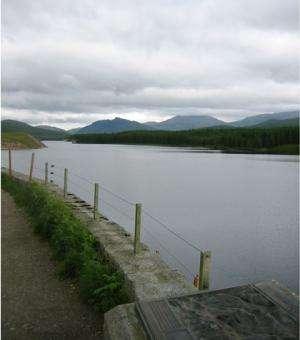Members of the public should be urged to take better care of their septic tank systems in order to reduce the risk of bacteria and viruses being released to the environment, scientists will say at an event in Dundee on Wednesday (January 21).
Environmental stakeholders – including Scottish Water, Scottish Natural Heritage, local authority officials and the Scottish Environment Protection Agency – will gather at Abertay University to hear the key findings and recommendations of research into septic tank pollution carried out by experts from the University's Urban Water Technology Centre (UWTC), led by Professor Joe Akunna.
More than 160,000 people in Scotland are not connected to the main sewerage system, including many in rural areas.
This means they rely on septic tanks to process their domestic wastewater.
However, many are not aware that their own tanks can be causing environmental pollution.
Raising public awareness among homeowners on how to inspect and maintain their septic systems has therefore been identified as one of the key ways in which water regulators could reduce the risks posed by septic tank pollution.
Juliette O'Keeffe, Research Officer at UWTC, said: "The pollution from septic tanks can pose a serious environmental and public health risk, as – if they aren't properly maintained – they release microbes into the environment such as E. coli and norovirus.
"These make their way into the sea where people swim and enjoy spending time, so it's vital that we do what we can to prevent that from happening.
"In our review we discovered that, surprisingly, many site owners are not aware of the type of system they have, or that they are responsible for making sure they are not causing environmental pollution. So one of our main recommendations to the environmental regulators is that they carry out a public awareness campaign.
"We also looked at more complex measures such as the creation of constructed wetlands and filters that use materials such as peat, which have shown promising results in reducing the release of harmful bacteria to the environment. So these will be in our list of recommendations to the water regulators as well."
The research was carried out on behalf of CREW – Scotland's Centre of Expertise for Water – and was designed to assist the regulators in developing appropriate strategies to influence the River Basin Management Plans, which set out how to protect Scotland's water environment.
More information: The public can have their say on these plans, which are currently out for consultation. More information is available on SEPA's website: www.sepa.org.uk/water/river_basin_planning.aspx
Provided by University of Abertay Dundee





















